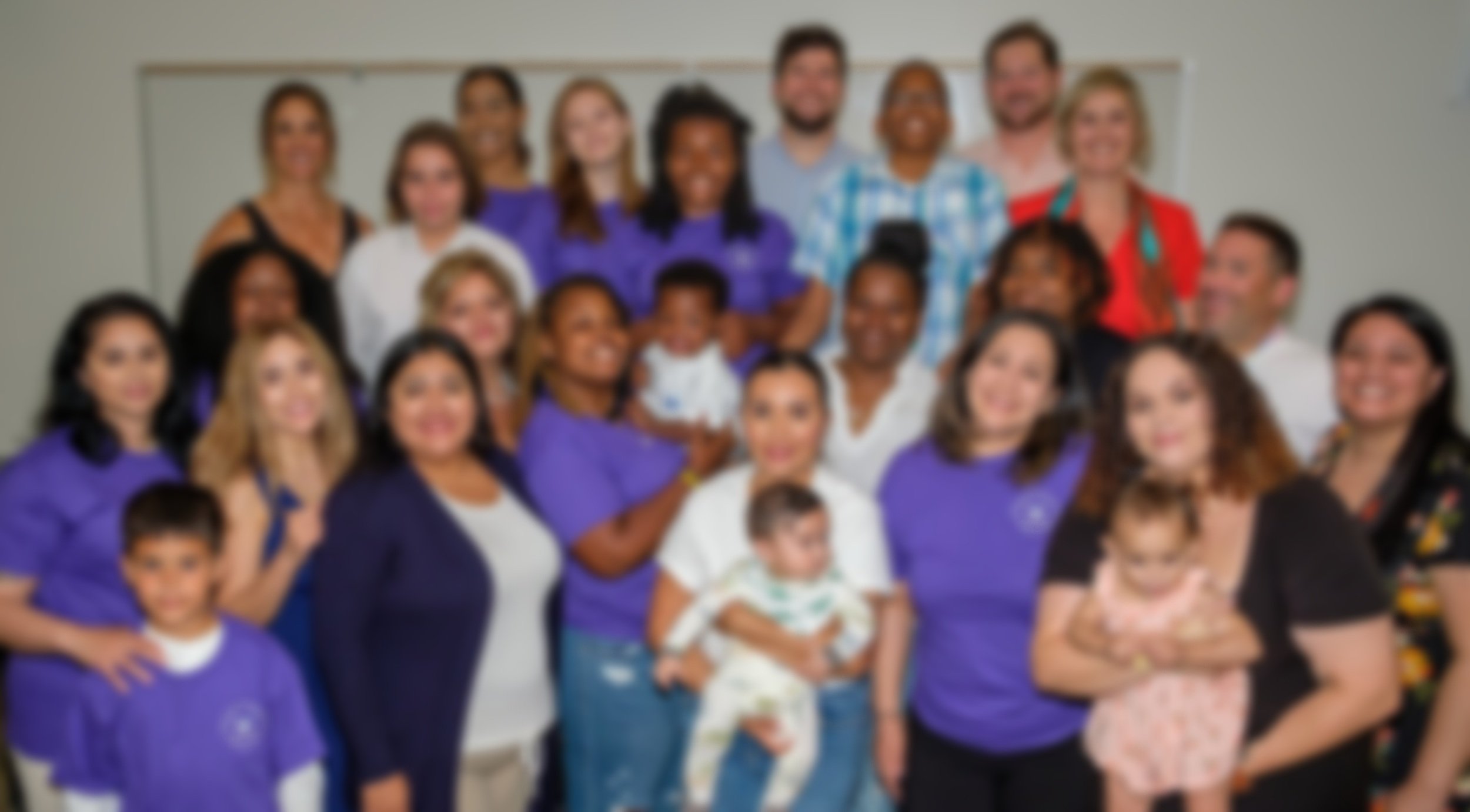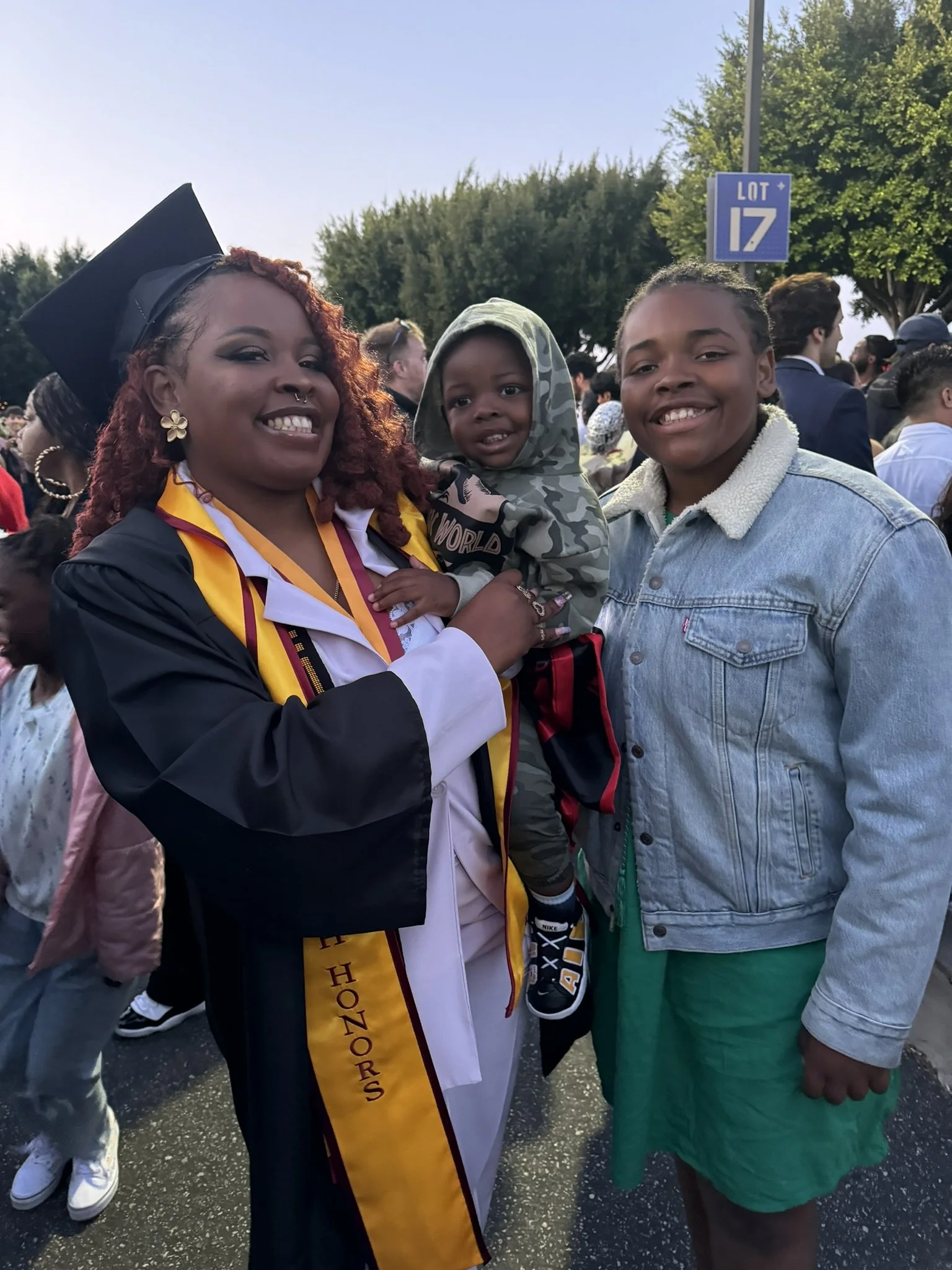
RTB Scholarship Cohort
Are you a single parent pursuing a college degree or career-track training? Learn more about our scholarship cohort!
Our scholarship cohort is one of the three cohort types that we are currently implementing.
Members of our scholarship cohort receive scholarship awards to support their tuition costs. New “Rookie” cohort members receive an award of $2,500, and returning “Veteran” cohort members receive an award of $4,500.
Like members of our stable housing cohort, scholarship recipients receive one-on-one coaching from trained staff who have relatable lived experiences. Each month, scholars work with their coaches to set and mark progress toward their goals.
Together with stable housing cohort members, scholarship cohort members also participate in workshops designed to help develop skills around family wellness, financial empowerment, college and career planning, and more. These workshops are facilitated by various RTB staff and single-parent students themselves, who can often offer the most helpful insights into time-management, navigating social systems, and advocating for their family’s needs.
SERVICES PROVIDED:
ELIGIBILITY:
Applicants must…
Be a single parent to at least one dependent under 18.
Live or attend school in one of the following California/Minnesota counties: Orange, LA, Ramsey, Hennepin, and Dakota.
Provide primary financial support for self and minor dependent(s).
Have not yet earned a bachelor’s degree or trade/tech certification.
Currently have a GPA of 2.5 or above.
Be able to commit an average of three hours per month to RTB programming.
RTB Scholarship Cohort FAQs
-
Yes. Raise The Barr does not and shall not discriminate on the basis of any applicable protected classification including, but not limited to, race, color, religion (creed), gender, gender expression, age, national origin (ancestry), disability, sexual orientation, or military status, in any of its activities or operations.
-
RTB scholarship cohort members receive varying scholarship amounts.
First-year cohort members, known as “Rookie Scholars,” receive a scholarship award of $2,500, which goes toward their tuition.
Returning cohort members, or “Veteran Scholars,” receive an award of $4,500.
-
No. If you have already earned a Bachelor's degree, you are no longer eligible to apply.
-
If you can provide documentation that shows you are a single-filer, and that you are the primary financial support for yourself and minor dependents, then yes you can still apply.
-
If you claim minor children on your tax return then yes. Dependents, under our definition, are biological children, adopted children, foster children, or any minor child whom you claim as a dependent on your tax return.
-
Please provide a written statement that includes your signature, stating that you did not file. You can upload that to your application. Please provide your SAR or FAFSA instead.
-
A competitive applicant is one who meets all eligibility requirements, has strong personal statements and recommendations, and demonstrates a strong interest in actively participating in the cohort programming.
-
Yes, you can apply as a part-time student as long as you are taking 9 units per term.
-
No. The application is not complete without two uploaded letters of recommendation.
-
The deadline to accept the application is Sunday, June 30th, 2024.
-
Members of RTB’s scholarship receive a scholarship award, which they can use toward tuition.
Cohort members must attend regular workshops (some virtual, some in-person) with other cohort members in their region, as well as meeting with RTB staff one-on-one. Participation in cohort programming tends to involve the following time commitment:
1-2 hours a month for check in with a program coordinator/coach
2-3 hours a month for mandatory programs/workshops/experiences
-
Applicants will be notified by August 15.
-
Letters of recommendation must be from two references who can speak to the applicant’s leadership, lived experiences, career goals, who may have supervised applicant in a work position; a teacher or instructor; mentor; volunteer work supervisor; clergy member, and/or who can speak to the applicant’s readiness for the cohort. Professional or academic references are preferred but friends and family members may be references.




